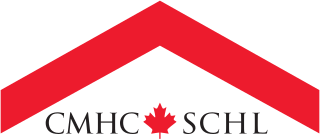
The Federal Housing Administration (FHA), also known as the Office of Housing within the Department of Housing and Urban Development (HUD), is a United States government agency founded by President Franklin Delano Roosevelt, established in part by the National Housing Act of 1934. Its primary function is to provide insurance for mortgages originated by private lenders for various types of properties, including single-family homes, multifamily rental properties, hospitals, and residential care facilities. FHA mortgage insurance serves to safeguard these private lenders from financial losses. In the event that a property owner defaults on their mortgage, FHA steps in to compensate the lender for the outstanding principal balance.
An interest-only loan is a loan in which the borrower pays only the interest for some or all of the term, with the principal balance unchanged during the interest-only period. At the end of the interest-only term the borrower must renegotiate another interest-only mortgage, pay the principal, or, if previously agreed, convert the loan to a principal-and-interest payment (amortizing) loan at the borrower's option.

An FHA insured loan is a US Federal Housing Administration mortgage insurance backed mortgage loan that is provided by an FHA-approved lender. FHA mortgage insurance protects lenders against losses. They have historically allowed lower-income Americans to borrow money to purchase a home that they would not otherwise be able to afford. Because this type of loan is more geared towards new house owners than real estate investors, FHA loans are different from conventional loans in the sense that the house must be owner-occupant for at least a year. Since loans with lower down-payments usually involve more risk to the lender, the home-buyer must pay a two-part mortgage insurance that involves a one-time bulk payment and a monthly payment to compensate for the increased risk. Frequently, individuals "refinance" or replace their FHA loan to remove their monthly mortgage insurance premium. Removing mortgage insurance premium by paying down the loan has become more difficult with FHA loans as of 2013.

Canada Mortgage and Housing Corporation is Canada's federal crown corporation responsible for administering the National Housing Act, with the mandate to improve housing by living conditions in the country.

Second mortgages, commonly referred to as junior liens, are loans secured by a property in addition to the primary mortgage. Depending on the time at which the second mortgage is originated, the loan can be structured as either a standalone second mortgage or piggyback second mortgage. Whilst a standalone second mortgage is opened subsequent to the primary loan, those with a piggyback loan structure are originated simultaneously with the primary mortgage. With regard to the method in which funds are withdrawn, second mortgages can be arranged as home equity loans or home equity lines of credit. Home equity loans are granted for the full amount at the time of loan origination in contrast to home equity lines of credit which permit the homeowner access to a predetermined amount which is repaid during the repayment period.
Equity sharing is another name for shared ownership or co-ownership. It takes one property, more than one owner, and blends them to maximize profit and tax deductions. Typically, the parties find a home and buy it together as co-owners, but sometimes they join to co-own a property one of them already owns. At the end of an agreed term, they buy one another out or sell the property and split the equity. In England, equity sharing and shared ownership are not the same thing.
Closing costs are fees paid at the closing of a real estate transaction. This point in time called the closing is when the title to the property is conveyed (transferred) to the buyer. Closing costs are incurred by either the buyer or the seller.
Mortgage insurance is an insurance policy which compensates lenders or investors in mortgage-backed securities for losses due to the default of a mortgage loan. Mortgage insurance can be either public or private depending upon the insurer. The policy is also known as a mortgage indemnity guarantee (MIG), particularly in the UK.
Equity stripping, also known as equity skimming, is a type of foreclosure rescue scheme. Often considered a form of predatory lending, equity stripping became increasingly widespread in the early 2000s. In an equity stripping scheme an investor buys the property from a homeowner facing foreclosure and agrees to lease the home to the homeowner who may remain in the home as a tenant. Often, these transactions take advantage of uninformed, low-income homeowners; because of the complexity of the transaction, victims are often unaware that they are giving away their property and equity. Several states have taken steps to confront the more unscrupulous practices of equity stripping. Although "foreclosure re-conveyance" schemes can be beneficial and ethically conducted in some circumstances, many times the practice relies on fraud and egregious or unmeetable terms.
In the United States, a mortgage note is a promissory note secured by a specified mortgage loan.

A mortgage loan or simply mortgage, in civil law jurisdictions known also as a hypothec loan, is a loan used either by purchasers of real property to raise funds to buy real estate, or by existing property owners to raise funds for any purpose while putting a lien on the property being mortgaged. The loan is "secured" on the borrower's property through a process known as mortgage origination. This means that a legal mechanism is put into place which allows the lender to take possession and sell the secured property to pay off the loan in the event the borrower defaults on the loan or otherwise fails to abide by its terms. The word mortgage is derived from a Law French term used in Britain in the Middle Ages meaning "death pledge" and refers to the pledge ending (dying) when either the obligation is fulfilled or the property is taken through foreclosure. A mortgage can also be described as "a borrower giving consideration in the form of a collateral for a benefit (loan)".
In real estate, creative financing is non-traditional or uncommon means of buying land or property. The goal of creative financing is generally to purchase, or finance a property, with the buyer/investor using as little of his own money as possible, otherwise known as leveraging. Using these techniques an investor may be able to purchase multiple properties using little, or none, of his "own money".

The American subprime mortgage crisis was a multinational financial crisis that occurred between 2007 and 2010 that contributed to the 2007–2008 global financial crisis. The crisis led to a severe economic recession, with millions of people losing their jobs and many businesses going bankrupt. The U.S. government intervened with a series of measures to stabilize the financial system, including the Troubled Asset Relief Program (TARP) and the American Recovery and Reinvestment Act (ARRA).
Seller financing is a loan provided by the seller of a property or business to the purchaser. When used in the context of residential real estate, it is also called "bond-for-title" or "owner financing." Usually, the purchaser will make some sort of down payment to the seller, and then make installment payments over a specified time, at an agreed-upon interest rate, until the loan is fully repaid. In layman's terms, this is when the seller in a transaction offers the buyer a loan rather than the buyer obtaining one from a bank. To a seller, this is an investment in which the return is guaranteed only by the buyer's credit-worthiness or ability and motivation to pay the mortgage. For a buyer it is often beneficial, because he/she may not be able to obtain a loan from a bank. In general, the loan is secured by the property being sold. In the event that the buyer defaults, the property is repossessed or foreclosed on exactly as it would be by a bank.
Loss mitigation is used to describe a third party helping a homeowner, a division within a bank that mitigates the loss of the bank, or a firm that handles the process of negotiation between a homeowner and the homeowner's lender. Loss mitigation works to negotiate mortgage terms for the homeowner that will prevent foreclosure. These new terms are typically obtained through loan modification, short sale negotiation, short refinance negotiation, deed in lieu of foreclosure, cash-for-keys negotiation, a partial claim loan, repayment plan, forbearance, or other loan work-out. All of the options serve the same purpose, to stabilize the risk of loss the lender (investor) is in danger of realizing.
Pinnacle Financial Partners, Inc. is an American bank headquartered in Nashville, Tennessee operating in Tennessee, as well as North Carolina, South Carolina, Virginia, Georgia, and Alabama.
Loan modification is the systematic alteration of mortgage loan agreements that help those having problems making the payments by reducing interest rates, monthly payments or principal balances. Lending institutions could make one or more of these changes to relieve financial pressure on borrowers to prevent the condition of foreclosure. Loan modifications have been practiced in the United States since the 1930s. During the Great Depression, loan modification programs took place at the state level in an effort to reduce levels of loan foreclosures.
PACE financing is a means used in the United States of America of financing energy efficiency upgrades, disaster resiliency improvements, water conservation measures, or renewable energy installations in existing or new construction of residential, commercial, and industrial property owners. Depending on state legislation, PACE financing can be used to finance water efficiency products, seismic retrofits, resiliency, and other measures with social benefits.

Solar Mosaic is a clean energy fin-tech company based in Oakland, California. Founded in 2010, Mosaic created its initial business model using crowdfunding principals to offer loans for commercial solar development projects. After shifting its model in 2014, Mosaic is now focused on financing residential solar projects by leveraging third party capital partners. Through this model, the company aims to democratize the social and environmental benefits of clean energy. Since 2019, the company has been the target of claims of using its financial structure to scam homeowners with fraudulent loans, leading to lawsuits demanding over $3 million from consumers in California alone, with other lawsuits coming from consumers and State Attorney Generals in nearly 30 states.
A home ownership investment is used by home purchasers to raise funds to buy real estate or by home owners to extract cash from a real estate investment. In exchange for cash, the home owner shares in some percentage of the increase and sometimes also the decrease in value of the real estate property. When the home is sold, the home owner settles by returning to the investor some amount of the proceeds from the sale based on the change in value of the real estate asset. Alternatively, the contract may have a maturity period or may provide the homeowner the option to terminate the contract at their discretion. In this case, an appraisal may be necessary to deem the price change of the asset and therefore the return to the investor.







